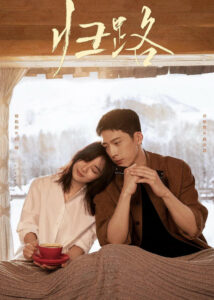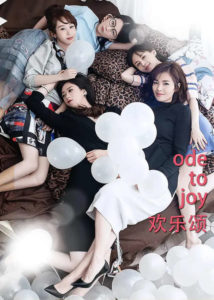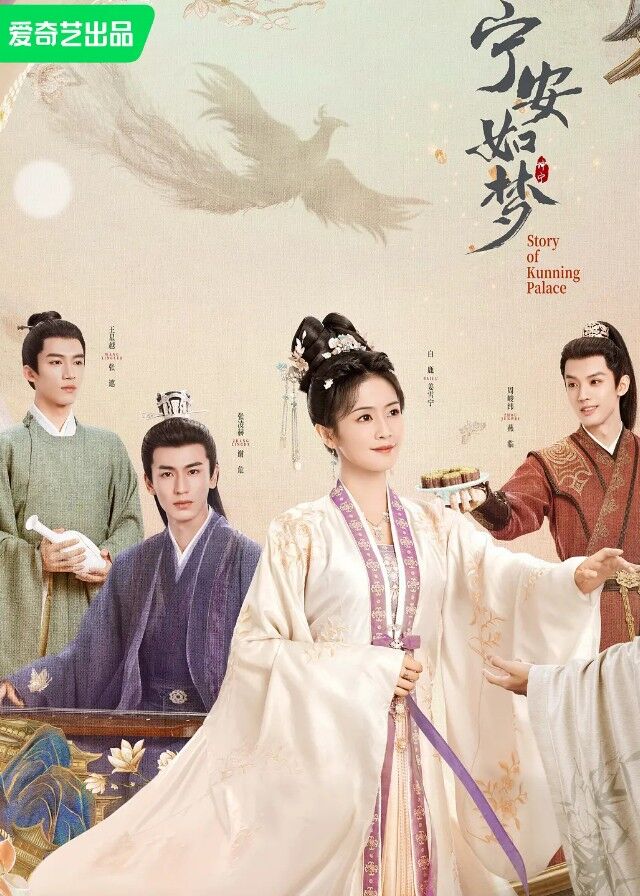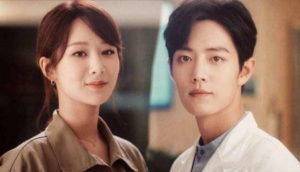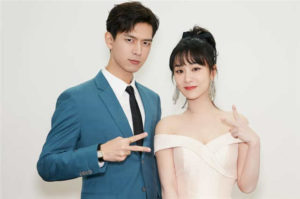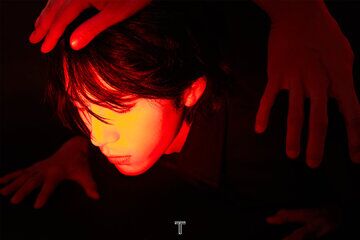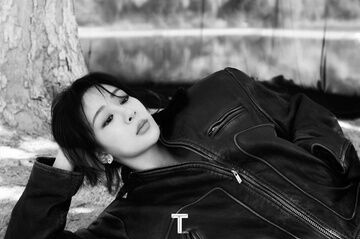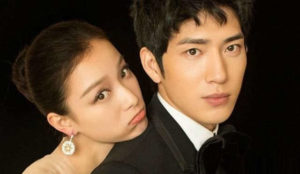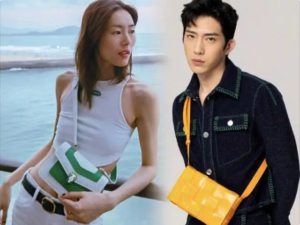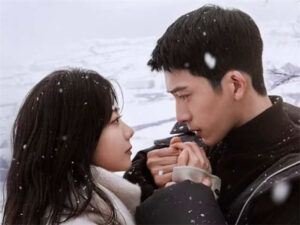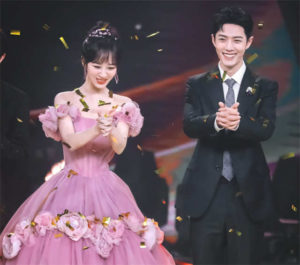The Psychologist Episode 39 Recap
> The Psychologist Recap
He Dun revealed to Lili and Qian Kaiyi that Professor Ji was not Ye Jiahui's adoptive father, but his biological father. She explained that Jiahui had been raised by his adoptive father, and that Fu Tang was Professor Ji's former patient. Lili expressed her confusion, stating that if Ye Jiahui's mother was taken by his adoptive father, he should logically resent his adoptive father more.
He Dun speculated that perhaps Jiahui transferred his hatred to Professor Ji due to his biological father's absence, which led to a series of tragedies. Qian Kaiyi interjected loudly, pointing out that Jiahui was abandoned by his biological father, so it was natural for him to feel hatred. He Dun quickly shushed him, reminding him that Ye Jiahui and Fu Tang were still outside.
Lili added that she would not compromise on matters of principle, hinting at her unwavering stance against Jiahui’s past actions, despite Qian Kaiyi's slight sympathy. Shortly after, Ye Jiahui and Fu Tang departed, thanking them for the use of their kitchen. The two then went to a coffee shop. Fu Tang was deeply absorbed in the music playing, prompting Ye Jiahui to borrow a violin and ask her to play a tune.
As Fu Tang played, memories surfaced of teaching a young boy, presumably Jiahui, to play the violin, focusing on his left-hand technique. She described music as "flowing light, colorful," which she could almost see and touch. However, she mused that beautiful things never last, which is why her favorite item was a music box, a place where music and precious memories could be kept for a time. Meanwhile, Fang came to He Dun's studio for a counseling session.
She recounted seeing her husband, Song, driving another woman, Li Lanzhi, home, which she believed was clear evidence of his infidelity. In a private session with He Dun, Song vehemently denied the accusation, insisting that Fang was overthinking. He explained that Li Lanzhi's stall was conveniently located near his company, and he simply offered her a ride because she was a woman struggling with many bags. He maintained their relationship was strictly platonic.
He Dun noted that Fang's persistent complaints had caused Song to feel a growing disappointment in their marriage, finding Li Lanzhi's respectful demeanor refreshing in contrast. Song admitted that he sometimes lied to Fang about his late returns, which Fang had noticed. He confessed that on one occasion, he stayed longer after a dance session to give Li Lanzhi individual instruction, returning late.
When Fang called, he fabricated a story about eating late-night snacks with a dance partner, a lie that was soon exposed by another dance partner who had returned home earlier and was seen by Fang walking with his own family. He shared a video of their dance group, emphasizing it was just healthy exercise. He Dun acknowledged Fang's anger and the damage to trust caused by the deception.
She observed that Song's tendency to avoid Fang's complaints, a "seek-and-run" pattern, led him to lie for "breathing room," despite Fang never explicitly demanding he cut ties with other women. He described Fang as dominant, someone who rarely consulted his opinions. He Dun pointed out that the very qualities partners initially appreciate in each other can often become sources of conflict later. She also highlighted Fang's indirect communication style, asking "Where are you going?"
instead of a direct request to stay. He Dun explained that for a marriage to be stable, the "giving and taking" must be balanced, and mutual understanding of needs is paramount. As homework, she asked them to reflect on their most significant arguments over the years. Later, Fu Tang took Ye Jiahui shopping for clothes. She selected several items for him, but was dismayed when she realized she didn't have enough money to buy them all.
Ye Jiahui, noticing her disappointment, gently stated that he had enough clothes and only needed one, choosing a single item that cost significantly less. Despite his reassurance, Fu Tang later apologized to him back in her hospital room, regretting that she hadn't saved more to buy both coats. Back at her apartment, He Dun was having dinner with Lili, who was visibly upset that Jin hadn't replied to her messages.
Lili threatened to permanently block him if he continued to ignore her. He Dun advised her to be patient, vouching for Jin's responsible character. Lili then asked He Dun about her visit to her mother's house. He Dun confided that she had found a pair of her father's old slippers under the sofa.
She confessed to Lili that even though she knew her father would not return, seeing the slippers filled her with a profound sense of awkwardness, making it difficult to face her mother. So, she left abruptly. Lili playfully chided He Dun for her "late weaning period," which He Dun retorted was unnecessary teasing. That evening, a knock at the door revealed Ye Jiahui. Lili, surprised by his late visit, mockingly asked if he was there to borrow their kitchen again.
Ye Jiahui, visibly distressed, stated he was there to apologize. He admitted he brought beer because he wouldn't have the courage to speak otherwise. He confessed to installing a surveillance plugin on He Dun's phone during a previous visit to fix their Wi-Fi. He also revealed that his actions, including staging Lili's fall for acupuncture, were calculated to gain trust, approach He Dun's mother, and gather information.
He further admitted that Yao Kexin's case, as well as his interactions with He Dun's senior Li Yun, Zhang Lizi, and other clients like Mo Yu, were all part of a larger scheme to sabotage He Dun's client relationships. He Dun confronted him, stating that while he might want to hurt her and Professor Ji, he shouldn't involve innocent people. Ye Jiahui apologized profusely, expressing regret for his actions and hoping for their forgiveness.
Lili pressed him, asking if the incident with Fang Zhongyi was also orchestrated, which Ye Jiahui firmly denied, confirming that particular event was genuine. Lili, acknowledging his one act of sincerity, thanked him for that, though she still couldn't forgive his other deceptions. He Dun, however, found his behavior terrifying, unsure of what was real or fake about him. Ye Jiahui, accepting their judgment, prepared to leave without seeking their forgiveness.
But He Dun stopped him, looking at him thoughtfully and declaring, "It's time to get reacquainted." Qian Kaiyi affirmed, "Yes," confirming the sincerity of Ye Jiahui's confession. He Dun then extended her hand, introducing herself anew, "Hello, I'm He Dun. Nice to meet you." Ye Jiahui, with a renewed sense of hope, reciprocated, "Hello, I'm Ye Jiahui. Nice to meet you too." Qian Kaiyi observed that if they were "still friends," Ye Jiahui should consider moving back in with them.
Song and Fang returned for their next counseling session. He Dun asked who wanted to speak first. Song began, recalling their first major argument on their wedding day. To give Fang a grand wedding reception at the Haowei Qilin Hotel, he used a significant portion of the money they had saved for a house down payment. With the remaining funds, knowing Fang loved singing and he loved dancing, he bought an imported Aiwa recorder and a video camera.
Fang reminded him that the video recorder was mainly for his dancing. A flashback revealed Fang's anger upon learning the camera cost over 5,000 yuan, especially since her mother-in-law had only given her 5,000 yuan as dowry. She was concerned about their ability to buy a house. Song eventually conceded to her fiscal control. Their second major conflict occurred on their son Mao's eighteenth birthday. Mao wanted to watch a basketball game, which Song supported and secretly bought tickets for.
Fang vehemently opposed, arguing that Mao, a high school senior with average grades, needed to focus on his studies for the college entrance exam, fearing he would fall behind his cousin Heng Bin's son who could afford to study abroad. Song defended his decision, saying it was Mao's 18th birthday and a break would be beneficial. They argued, with Fang accusing Song of orchestrating a "two-man comic show" with Mao.
Despite her concerns, Mao went to Guangzhou, and upon his return, his improved study habits seemed to temporarily soothe Fang's worries. He Dun explained that these early disputes highlighted fundamental disagreements they had. She then introduced the concept of three stages of marriage, as described by American sociologist Cindy Bozzied. The first, the learning stage, saw them as newlyweds with clear common goals like buying a house and having a child, making it easy to resolve conflicts.
The second, the parenting stage, shifted their focus to their son, effectively creating a "triangle relationship" that temporarily masked underlying issues, as their shared goal of raising Mao superseded their personal grievances. However, He Dun warned that when Mao eventually left home, all those unresolved issues would inevitably resurface. He Dun emphasized that without third-party assistance, their relationship would continue to deteriorate.
She reframed conflicts not as destructive forces, but as "messengers" signaling problems that, once addressed, could strengthen their bond. She gave them a new exercise: to revisit past arguments, but this time from an objective, outsider's perspective, to truly understand each other's feelings before expressing their own thoughts directly. A simulated scene showed an argument at a social gathering. Fang, worried about Song's high blood pressure and prostatitis, snatched a piece of mutton from his chopsticks, creating a scene.
Song, humiliated, angrily called her paranoid and abnormal. Fang retorted by bringing up his prostatitis publicly, further escalating the tension. Song, feeling disrespected, challenged her to "go live with the person who you think is normal." Reflecting on the incident, Song realized his harsh words were out of line and promised to discuss family matters privately from now on.
Fang, reflecting on her own behavior, admitted she didn't want to go to Song's dance classes not due to lack of interest, but because she felt she had "grown old" and "wasn't used to" such activities anymore.
She confessed that after Mao left home, her world had shrunk to their "one-acre three-fen land," her sole focus being on Song and Mao, waiting for them to come home and deciding what to cook, emphasizing that now, with Mao growing increasingly independent, Song was the only one left by her side.







